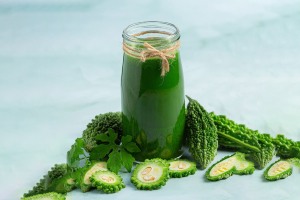

Certain couples seem to get pregnant quite quickly while others need more time. If you’re having trouble getting pregnant, it may be due to the timing. When it comes to conceiving, it’s essential to get the timing right. So, read on to learn all about the best time to get pregnant and how to maximise your chances.
Best Age for Pregnancy
In theory, a woman can become pregnant and give birth at any time between the onset of her menstrual cycle at adolescence and menopause, when she stops getting her period. A woman’s reproductive years typically span from age 12 to 51. As you age, your fertility naturally decreases, which may make it more difficult for you to become pregnant. Additionally, there may be higher risks of pregnancy complications if one starts a family at a later age. The most suitable age for pregnancy, according to experts, is between your late 20s and early 30s. Pregnancy issues are less likely to occur in this age range, increasing the chances of best outcomes for both you and your child.
Which is the Best Time to Conceive?
The majority of couples find that getting pregnant just requires them to have sexual intercourse during ovulation. And it is somewhere right too; knowing the ovulation phase is essential if you have made the decision to start a family. Ovulation refers to the time in your menstrual cycle when an ovary releases an egg. This is when you are most fertile, making it the best time to get pregnant. For the majority of women, keeping a calendar of their periods is the simplest and most affordable method of determining when they are ovulating. Usually, ovulation occurs 14 days or less before the onset of your menstrual cycle. It is quite consistent amongst women, regardless of the length of their menstrual cycle.
The next thing you should know is how the menstrual cycle’s days are tallied. A menstrual cycle lasts from the first day of your period until the first day of your subsequent period. For example, if your period starts on January 1, that’s considered day 1 of your cycle. To find your most fertile days, subtract 14 from your cycle length. So, if your cycle is 21 days, you likely ovulate around day 7. You will ovulate on day 21, if your cycle is longer than average – say, 35 days. Similarly, ovulation will occur on days 12 and 14 of every cycle respectively, if your cycle lasts between 26 and 28 days.
How Often Should You Have Sex to Conceive?
Many believe that there is just one best time to get pregnant every month. The window of fertility is actually much larger than this, lasting roughly six days every cycle. This is due to the fact that an egg can survive for roughly 12 to 24 hours following ovulation, whereas sperm can remain in a woman’s body for up to 5 days. Therefore, you can become pregnant even if you have sex up to five days before ovulation or one day after. According to research, you should have intercourse everyday or every other day throughout these six days for the highest chance of becoming pregnant.
Conclusion
Your chances of becoming pregnant might be greatly increased by knowing the best time to get pregnant. You can time your sexual activity to increase the chance of becoming pregnant by monitoring your menstrual cycle and determining when is your most fertile window. Even though an age-related decline in fertility is inevitable, leading a healthy lifestyle and being aware of your ovulation time can help. Don’t give up if conception takes longer than anticipated or if you have any pregnancy complications; patience is key and of course consulting a healthcare professional/ gynaecologist can offer you personalised counsel and comfort as you prepare to become a parent.




